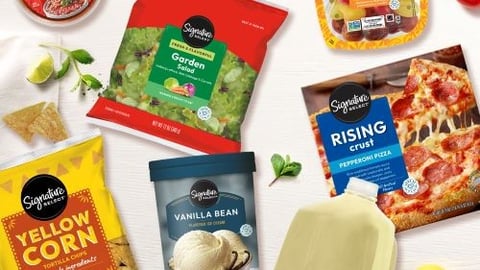Grocers Ready to Jumpstart Private-Label Innovation
Grocery industry executives are ready to increase their investments in private brands, according to research from FMI - the Food Industry Association. In its latest report, "The Power of Private Brands 2023: Innovation that Drives Winning Private Brands," FMI also found that private-label innovation is on the brain as many companies prioritize advancement in packaging, branding, purchasing, logistics, inventory management and more.
FMI found that 90% of grocery executives find private brands extremely or very important to their organizations, and 80% plan to increase private brand investments moderately or significantly in the next two years. With only 10% saying their organizations are “very far along” on innovation within the segment, there’s a lot of room for innovation across the board, FMI found.
[Read more: "Oliver's Market Launches Private-Brand Oils, Vinegars"]
“After temporary pauses to some innovation efforts because of pandemic supply disruptions and on-going consolidation many food retailers are ready to jumpstart innovation in collaboration with their supplier partners,” said Doug Baker, FMI VP of industry relations. “Respondents said that while new products are always an important part of innovation, the efforts need to go well beyond new item introductions, including focusing on branding, purchasing, logistics, inventory management, marketing and more."
Continued Baker: “We also know that consumer demand for information about the products they use and consume has remained at an all-time high. For instance, many consumers now engage in a hybrid approach to shopping, using in-store and digital touchpoints to seek package claims.”
As for the top sales and share growth opportunities for private brands, best value, lowest price, premium attributes, health and well-being, and frozen foods came out on top, respectively. According to FMI, this wide range of opportunities helps drive home the fact that private brands can help meet the needs of vastly different customer bases.
Capitalizing on current shopper behaviors to market private-label products is another way grocers can innovate, including using labels to provide transparency and talk about value beyond cost savings, especially how and where ingredients are sourced. Incentivizing repeat customers with loyalty programs is another winning choice.
When it comes to private-label supplier relations, grocery executives emphasized the importance of boosting communications and treating suppliers as team members, prioritizing bringing suppliers directly into the product development process. Retailers are also finding it important to leverage metrics and measurements to help ensure progress.






